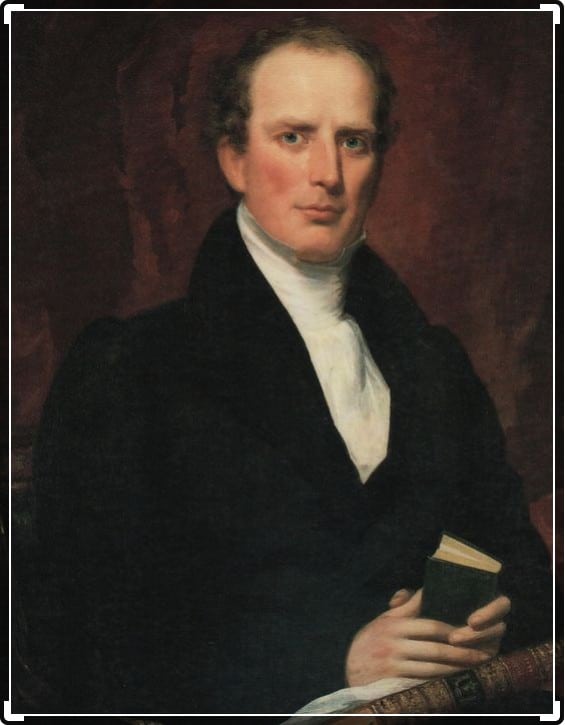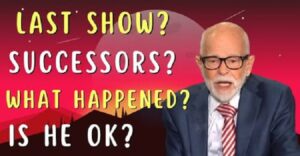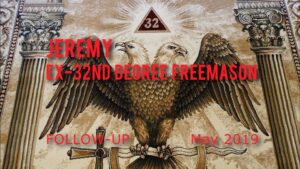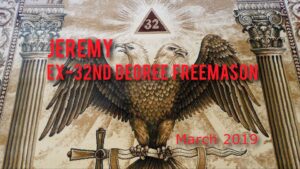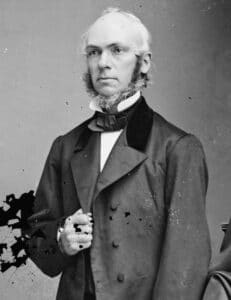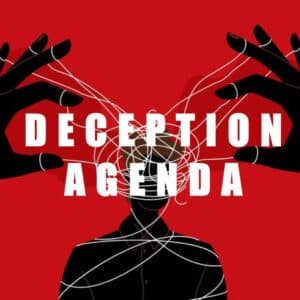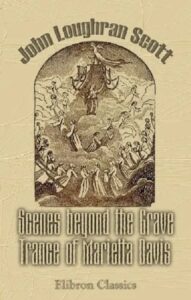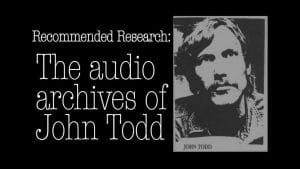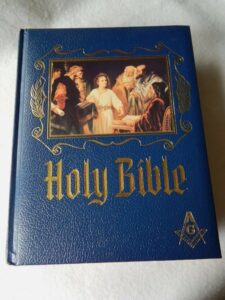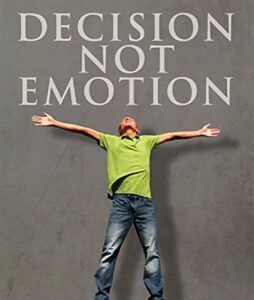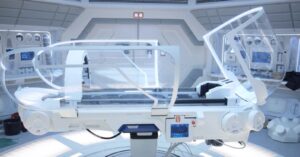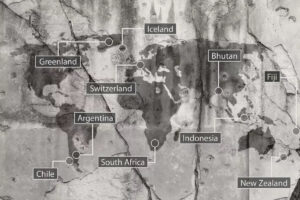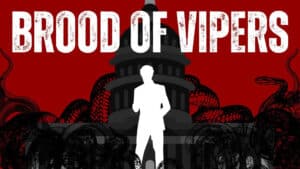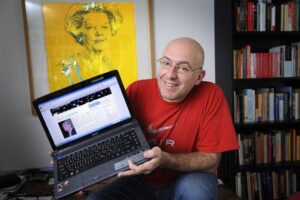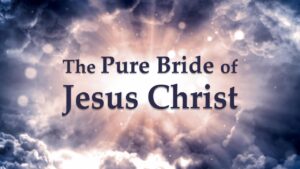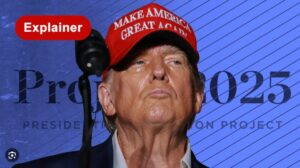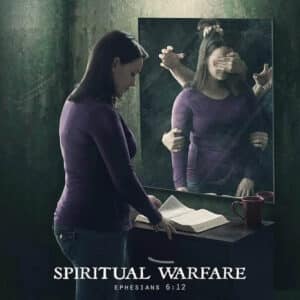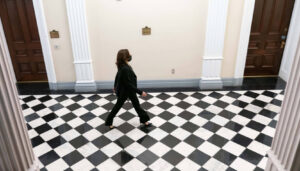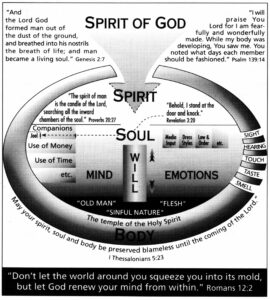“I wish, if possible, to arrest the spread of this great evil, by giving the public, at least, so much information upon this subject as to induce them to examine and understand the true character and tendency of the institution.”
Eindtijdnieuws.com
April 24, 2023
“No words can describe the wonderful joy that was shed abroad in my heart. I wept aloud with joy and love. The waves came over me and over me, one after another until I cried out, ‘I shall die if these waves continue to pass over me. Lord, I cannot bear any more.” – Finney’s description of his filling with the Holy Spirit on the day that he repented
Charles Finney was born in Connecticut to an ordinary family and life that gave little hint of the great things God had in store for him. He was a schoolteacher and then a lawyer before his conversion at age 29.
Finney was filled with the Holy Spirit on the same day he was saved. And he immediately began witnessing to friends and family members. More than 20 people were saved in the 24 hours following Finney’s conversion!
Finney’s personal evangelism soon became public evangelism
He began to travel and preach in extended revival meetings. He considered revival to be a natural result of following the instructions God had laid out in His Word. During Finney’s 50 years of preaching, more than 500,000 were saved.
Why Charles Finney wrote a book attacking Freemasonry
Prior to his conversion, he had been a Freemason, but became a staunch opponent of Freemasonry, and wrote an extensive book attacking it, entitled ‘The Character, Claims, and Practical Workings of Freemasonry’.
‘I wish, if possible, to arrest the spread of this great evil, by giving the public, at least, so much information upon this subject as to induce them to examine and understand the true character and tendency of the institution.
I wish, if possible, to arouse the young men who are Freemasons, to consider the inevitable consequences of such a horrible trifling with the most solemn oaths, as is constantly practiced by Freemasons. Such a course must, and does, as a matter of fact, grieve the Holy Spirit, sear the conscience, and harden the heart.
I wish to induce the young men who are not Freemasons ‘to look before they leap’, and not be deceived and committed, as thousands have been, before they were at all aware of the true nature of the institution of Freemasonry.
I, with the many, have been remiss in suffering a new generation to grow up in ignorance of the character of Freemasonry, as it was fully revealed to us who are now old. We have greatly erred in not preserving and handing down to the rising generation the literature upon this subject, with which we were made familiar forty years ago. For one, I must not continue this remissness.
Because I know that nothing but correct information is wanting to banish this institution from wholesome society. This has been abundantly proven. As soon as Freemasons saw that their secrets were made public, they abandoned their lodges for very shame. With such oaths upon their souls, they could not face the frown of an indignant public, already aware of their true position.
I have said in the body of the work, and say also in this preface, that I have no pecuniary intent in the sale of this work. I have not written for money, nor for fame. I shall get neither for my pains.’
Finney was a 3rd degree Master Mason in Freemasonry for 8 years…
although he left Masonry later in life. Finney came to believe that part of his oath as a Master Mason was immoral and that Masonry was dangerous to civil government evidenced by the alleged murder of William Morgan.
Finney joined the Meridihi peoplean Sun Lodge No. 32 in Warren, New York around the age of 24
He became an Entered Apprentice on February 28, 1816 and took both degrees of Fellow Craft and Master Mason a few weeks later on March 6, 1816. At the time he thought the rituals were ‘silly’, but did not think they were immoral. He admitted he also did not have any religion and was not a Christian.
Finney came to believe that he could no longer have any type of fellowship with Freemasons!
He asked for a discharge and was honorably discharged on May 6, 1824 around the age of 32, although his conversion experience had come several years earlier around the age of 29. He personally felt that he had been deceived into making an oath that conflicted with Christianity in that he had been promised that Freemasonry would not conflict with his religious or civil obligation. In his estimation, the oath of Master Mason did conflict with those obligations.
Finney wrote extensively about Freemasonry because he had been part of it.
Why I left Freemasonry
By evangelist Charles G. Finney, D.D. (1792-1875)
‘When I was converted to Christ I had belonged to the Masonic Lodge in Adams, New York, about four years. During the struggle of conviction of sin through which I passed, I do not recollect that the question of Freemasonry ever occurred to my mind.
But soon after my conversion, the evening came for attendance upon the Lodge, and I went
They, of course, were aware that I had become a Christian and the Master called upon me to open the Lodge with prayer. I did so, and poured out my heart to the Lord for blessings upon the Lodge. I observed that it created considerable excitement. The evening passed away, and at the close of the Lodge I was asked to pray again. I did so, and retired much depressed in spirit. I soon found that I was completely converted from Freemasonry to Christ, and that I could have no fellowship with any of the proceedings of the Lodge. Its oaths appeared to me to be monstrously profane and barbarous.
At that time I did not know how much I had been imposed upon by many of the pretensions of Masonry
But, upon reflection and examination, a severe struggle and earnest prayer, I found I could not consistently remain with them. My new life instinctively and irresistibly recoiled from any fellowship with what I now regarded as ‘the unfruitful works of darkness’.
Without consulting anyone, I finally went to the Lodge and requested my discharge
My mind was made up. Withdraw from them I must — with their consent if I might; without this consent if I must. Of this I said nothing; but somehow it came to be known that I had withdrawn.
They therefore planned a Masonic festival and sent a committee to me, requesting me to deliver an oration on that occasion. I quietly declined to do so, informing the committee that I could not conscientiously, in any wise, do what would show my approval of the institution, or sympathy with it.
However, for the time, and for years afterward I remained silent…
and said nothing against Masonry, though I had then so well considered the matter as to regard my Masonic oaths as utterly null and void. But from that time I never allowed myself to be recognized as a Freemason anywhere.
Bound to speak my mind freely and to renounce the Masonic oaths…
This was a few years before the revelations of Freemasonry by Captain William Morgan were published. When that book was published, I was asked if it was a true revelation of Freemasonry. I replied that it was so far as I knew anything about it, and that as nearly as I could recollect, it was a verbatim revelation of the first three degrees as I had myself taken them. I frankly acknowledged that that which had been published was a true account of the institution, and a true exposé of their oaths, principles and proceedings. After I had considered it more thoroughly, I was more perfectly convinced that I had no right to adhere to the institution, or appear to do so; and that I was bound, whenever the occasion came, to speak my mind freely in regard to it, and to renounce the horrid oaths that I had taken.
I found that in taking these oaths I had been grossly deceived and imposed upon!
I had been led to suppose that there were some very important secrets to be communicated to me; but in this I found myself entirely disappointed. Indeed I came to the deliberate conclusion that my oaths had been procured by fraud and misrepresentations; that the institution was in no respect what I had been informed it was; and as I have had the means of examining it more thoroughly, it has become more and more irresistibly plain to me that Freemasonry is highly dangerous to the State, and in every way injurious to the Church of Christ.
Freemasonry, an unchristian institution with an antichrist spirit
Judging from unquestionable evidences, how can we fail to pronounce Freemasonry an unchristian institution? We can see that its morality is unchristian. Its oath-bound secrecy is unchristian. The administration and taking of its oaths are unchristian and a violation of the positive command of Christ.
Masonic oaths pledge its members to some of the most unlawful and unchristian things:
-To conceal each other’s crimes.
-To deliver each other from difficulty, whether right or wrong.
-To unduly favor Masonry in political action and in business matters.
-Its members are sworn to retaliate and persecute unto death the violators of Masonic obligations.
-Freemasonry knows no mercy, and swears its candidates to avenge violations of Masonic obligations unto death.
-Its oaths are profane, taking the Name of God in vain.
-The penalties of these oaths are barbarous, even savage.
-Its teachings are false and profane.
-Its designs are partial and selfish.
-Its ceremonies are a mixture of puerility and profanity.
-Its religion is false.
-It professes to save men on other conditions than those revealed in the Gospel of Christ.
-It is wholly an enormous falsehood.
-It is a swindle, obtaining money from its members under false pretences.
-It refuses all examinations, and veils itself under a mantle of oath-bound secrecy.
-It is virtual conspiracy against both church and state.
Some fair conclusions
No one, therefore, has ever undertaken to defend Freemasonry as judged by the above. Freemasons themselves do not pretend that their institution as revealed in reliable books, and by some of their own testimony, is compatible with Christianity. So it must follow that,
The Christian church should have no fellowship with Freemasonry!
First, the Christian church should have no fellowship with Freemasonry; and those who adhere intelligently and determinately to such an institution have no right to be in the Christian church. We pronounce this judgment sorrowfully, but solemnly.
Second, should the question be asked, “What shall be done with the great number of professed Christians who are Freemasons?”
I answer: “Let them have nothing more to do with it.”
Let it be distinctly pressed upon their consciences that all Freemasons, above the first two Degrees, have solemnly sworn to conceal each other’s crimes, murder and treason alone excepted; and that all above the sixth Degree have sworn to espouse each other’s cause, and to deliver them from any difficulty, whether right or wrong.
Third, if they have taken those Degrees where they have sworn to persecute unto death those who violate their Masonic obligations, let them be asked whether they really intend to do any such thing. Let them be distinctly asked whether they intend to aid and abet the administration and taking of these oaths. Or if they still intend to countenance the false and hypocritical teachings of Masonry. Or if they mean to countenance the profanity of their ceremonies, and the partiality of their sworn practice. If so, surely they should not be allowed their place in the Christian church.
Fourth, can a man who has taken, and still adheres to the Master’s oath to conceal any secret crime of a brother of that Degree, murder and treason excepted, be a safe man with whom to entrust any public office? Can he be trusted as a witness, as a juror, or with any office connected with the administration of justice?
Fifth, can a man who has taken, and still adheres to, the oath of the Royal Arch Mason be trusted to public office? He swears to espouse the cause of a companion of this Degree when involved in any difficulty, so far as to extricate him, whether he be right or wrong. He swears to conceal his crimes, murder and treason not excepted! Is such a man bound by such an oath to be trusted with office? Ought he to be accepted as a witness or juror when another Freemason is a party in the case? Ought he to be trusted with the office of Judge, or Justice of the Peace, or as a Sheriff, Constable, Marshal or any other office?
What is your answer?
I appeal to your conscience in the sight of God, for an honest answer to these three questions:
1 Is any man who is under a most solemn oath to kill all who violate any part of Masonic oaths, a fit person to be at large among men?
2 Ought Freemasons of this stamp to be fellowshipped in the Christian church?
3 Do you believe that the sins of Masonic oaths are forgiven only to those who repent? And that we do not repent of those sins to which we still adhere? And that adherence makes us also partaker of other men’s sins?’
If we say that we have fellowship with Him, and walk in darkness, we lie, and do not the truth: but if we walk in the light, as He is in the light, we have fellowship one with another, and the blood of Jesus Christ His Son cleanses us from all sin. 1 John 1:6-7
And every man that hath this hope in Him purifies himself, even as He is pure. 1 John 3:3
Source:

